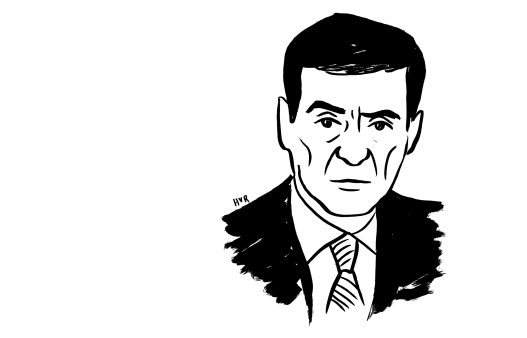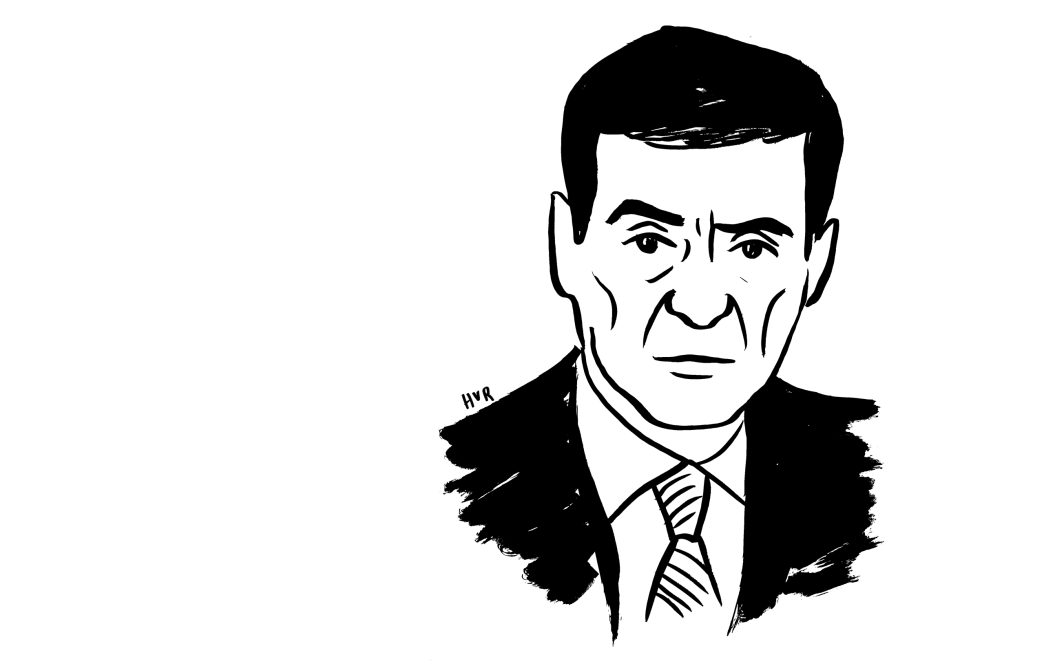Vepa Hajiyev is Turkmenistan’s permanent representative to the United Nations agencies in Geneva and ambassador to Switzerland. From 2006 to 2023 he was Deputy Minister of Foreign Affairs.
Maria Kuznetsova, Guillaume de Sardes: Turkmenistan is the only country in the world whose neutrality has been recognised twice by resolutions of the United Nations General Assembly. In the current context of growing geopolitical tensions, how does Ashgabat interpret the principle of ‘permanent neutrality’? Does this mean rejecting any military alliances or blocs, or is Turkmenistan prepared to participate in certain forms of regional and international cooperation, provided they do not contradict its neutral status?
Vepa Hajiyev: First of all, thank you for the opportunity to share information about such a significant occasion as the 30th anniversary of Turkmenistan’s permanent neutrality, which also coincides with 2025- the International Year of Peace and Trust. It is a great honour to address the European reader and to present the principles that have guided Turkmenistan’s peaceful and constructive foreign policy throughout these years.
The principle of permanent neutrality is enshrined in the Constitution and in Turkmenistan’s law ‘On Neutrality’. These documents clearly state that Turkmenistan refuses to participate in military alliances and blocs and does not allow foreign military bases to be established on its territory. However, our country’s neutrality does not mean isolation. On the contrary, Turkmenistan actively participates and is ready to participate in the future in regional and international cooperation formats that do not contradict its neutral status. The practice of recent decades shows that economic neutrality contributes to strengthening military-political stability and predictability in the Eurasian region. On this basis, Turkmenistan is systematically developing partnership relations within the framework of such structures as the Economic Cooperation Organisation (ECO), the CIS, OTS, and others. By the way, the year 2025 carries special symbolic meaning for Turkmenistan, as it reflects our nation’s continued commitment to peace, trust, and constructive international cooperation. This year serves as a reminder of the values that have guided Turkmenistan’s foreign policy as dialogue, balance, and mutual respect, and of our consistent contribution to strengthening stability and development both regionally and globally.
Some analysts say that neutrality without an army, i.e. without deterrence capabilities, is an illusion. Do you share the view that a strong army is the guarantor of neutrality? What role do you assign to your army and are you working to modernise it?
I agree with the idea that political neutrality alone is not enough to protect sovereignty and territorial integrity. I would like to emphasise that Turkmenistan’s military doctrine is exclusively defensive. Given the complex geopolitical situation in neighbouring countries in the Near and Middle East, Turkmenistan pays particular attention to strengthening its national defence and is systematically modernising its armed forces. However, its main objective is to ensure peace and stability, not to participate in armed conflicts.
Competition between transport routes and energy routes remains a significant challenge for the region. Turkmenistan has traditionally been cautious about supranational integration associations, but actively participates in major infrastructure and energy projects in the Eurasian space. Given the growing competition between transport corridors and trade routes, how does Ashgabat intend to reconcile maintaining its independence in economic policy with the need to integrate into the Eurasian economy? Is Turkmenistan considering participating in certain sectoral projects of the Eurasian Economic Union (EEU) or establishing hybrid cooperation mechanisms that would allow it to remain outside formal membership but within economic interaction?
Turkmenistan actively participates in international and regional economic and energy life, which allows it to contribute to the establishment of fair and sustainable economic processes.
Taking into account its national interests and regional realities, Turkmenistan combines bilateral partnerships with participation in multilateral initiatives. One such platform is cooperation between the European Union and Central Asian countries, as well as cooperation within the framework of Central Asia + the Eurasian Economic Union. In this context, Turkmenistan focuses on maximising the potential for bilateral cooperation with EAEU member countries, drawing on their experience and resources.
The SCO is another regional cooperation format in which Turkmenistan currently holds a special position. At the SCO (Shanghai Cooperation Organisation) and China-Central Asia summits, the parties emphasise economic cooperation in the fields of energy, trade and infrastructure. Turkmenistan is also in favour of expanding practical relations with China. Does Turkmenistan plan to join the SCO in the future? Does Turkmenistan wish to use this organisation to promote its infrastructure and energy initiatives, such as gas projects or transport routes across the Caspian Sea?
Indeed, the Shanghai Cooperation Organisation is one of the important mechanisms for regional cooperation. Turkmenistan participates in high-level SCO events as a guest of honour. This allows it to present its own international initiatives and projects, as well as to coordinate them taking into account the strategy of the organisation’s member countries.
We view the SCO as a platform for exchanging experiences and coordinating efforts in the areas of sustainable development, security, energy and transport, while maintaining our neutral status.
Turkmenistan has already become one of China’s largest gas suppliers. But heavy dependence on a single market always carries risks. What measures is Ashgabat taking to ensure that cooperation with China remains mutually beneficial and balanced?
China is one of Turkmenistan’s strategic partners in the political, commercial, economic, cultural and humanitarian spheres. Our relations have reached the level of a comprehensive strategic partnership.
At the same time, one of the key principles of Turkmenistan’s energy policy remains the diversification of export routes and the expansion of the circle of consumers of Turkmen gas. This work is being carried out taking into account geopolitical and geo-economic factors, as well as the willingness of partners to establish mutually beneficial cooperation. In this regard, diversifying Turkmen gas energy flows to the European direction is also one of our priority goals.
Moving from bilateral relations to concrete projects, TAPI takes on particular importance. For many years, the TAPI gas pipeline has been seen as a project with the potential to change the energy map of South Asia and Central Asia, but its implementation faces serious geopolitical and financial challenges. How does Turkmenistan currently assess the prospects for TAPI, given the instability in Afghanistan, the energy needs of Pakistan and India, and competition from other routes?
The TAPI gas pipeline is indeed one of the projects likely to change the energy map of South Asia. There is no doubt that the military and political risks in the region pose a major challenge to the implementation of such large-scale initiatives. However, this has not prevented the project from moving forward: to date, Turkmenistan and Afghanistan are continuing with the construction of the Afghan section of the TAPI gas pipeline. Turkmenistan remains convinced that this project is of great importance not only in terms of energy, but also in socio-economic terms, as it contributes to infrastructure development and the strengthening of regional interconnectivity.
European and American sanctions against Russia have disrupted trade flows in Central Asia. To what extent has the Turkmen economy been affected by this reconfiguration, particularly in terms of payments, logistics and insurance?
Any changes or complications in the economic situation in the Eurasian region have, to a certain extent, repercussions on the processes underway in Central Asia. However, thanks to Turkmenistan’s unique approach to integration and the establishment of sustainable supply chains, services and bilateral agreements, our country has managed to avoid the negative consequences of sanctions policy.
Turkmenistan consistently adheres to the principle of economic independence, which allows it to maintain the stability and sustainability of its national economy, even in a context of global turmoil.
Faced with climate change and water scarcity throughout Central Asia, how is Turkmenistan preparing to preserve its agriculture (particularly cotton) and its water supply?
The issue of water resources is one of the most important issues for the country’s sustainable development. Turkmenistan is implementing a comprehensive policy of rational water use, aimed at preserving ecosystems and improving agricultural efficiency.
Particular attention is being paid to projects carried out in cooperation with the United Nations Development Programme (UNDP), as well as to harnessing the potential of the region’s largest water structure, the Turkmen artificial lake Altyn Asyr. These initiatives aim to improve water resource management, increase agricultural yields and adapt agriculture to climate change. In addition, programmes to modernise the irrigation system and introduce water-saving technologies are being implemented to ensure the sustainable development of the country’s agricultural sector.

